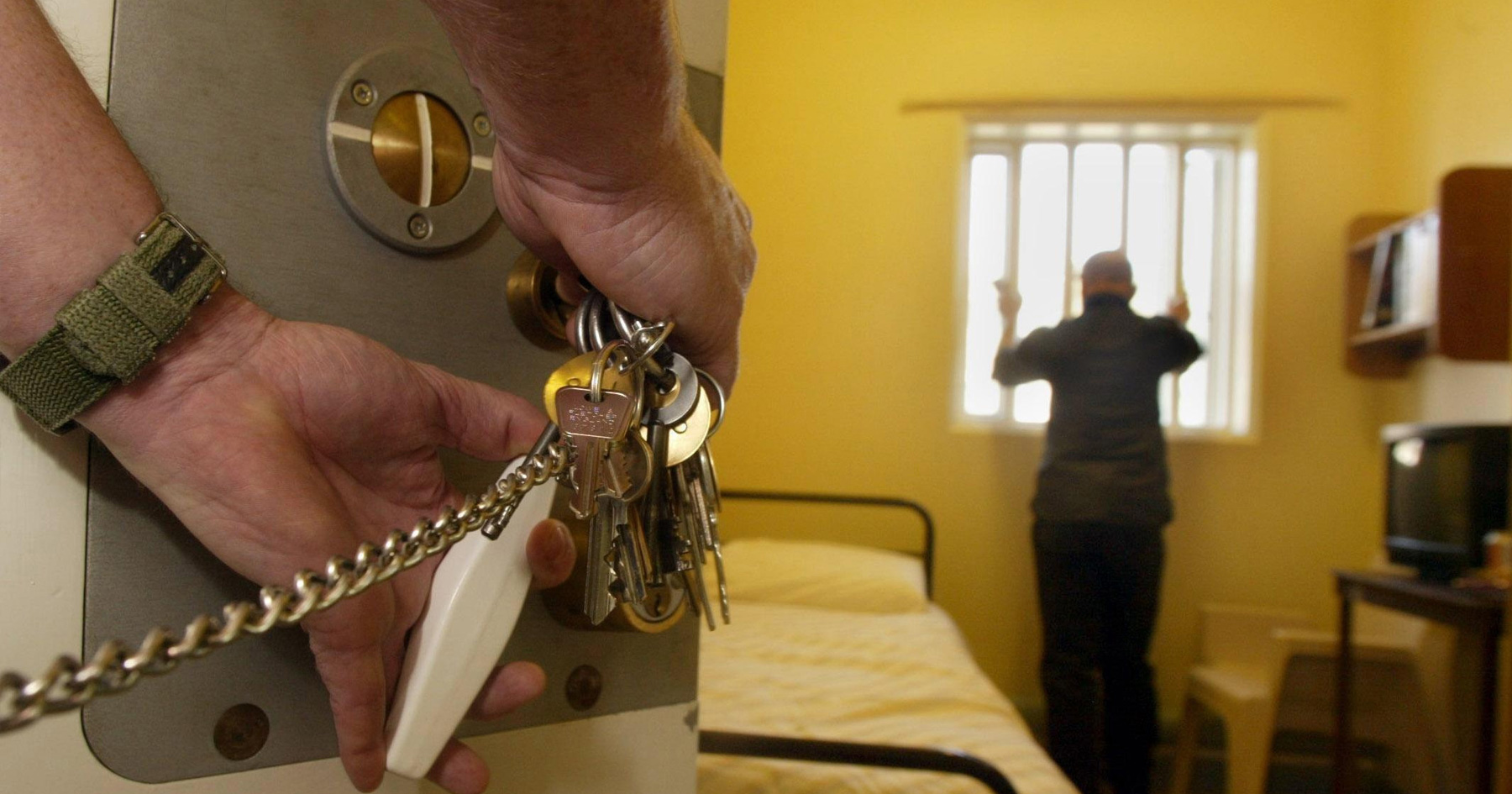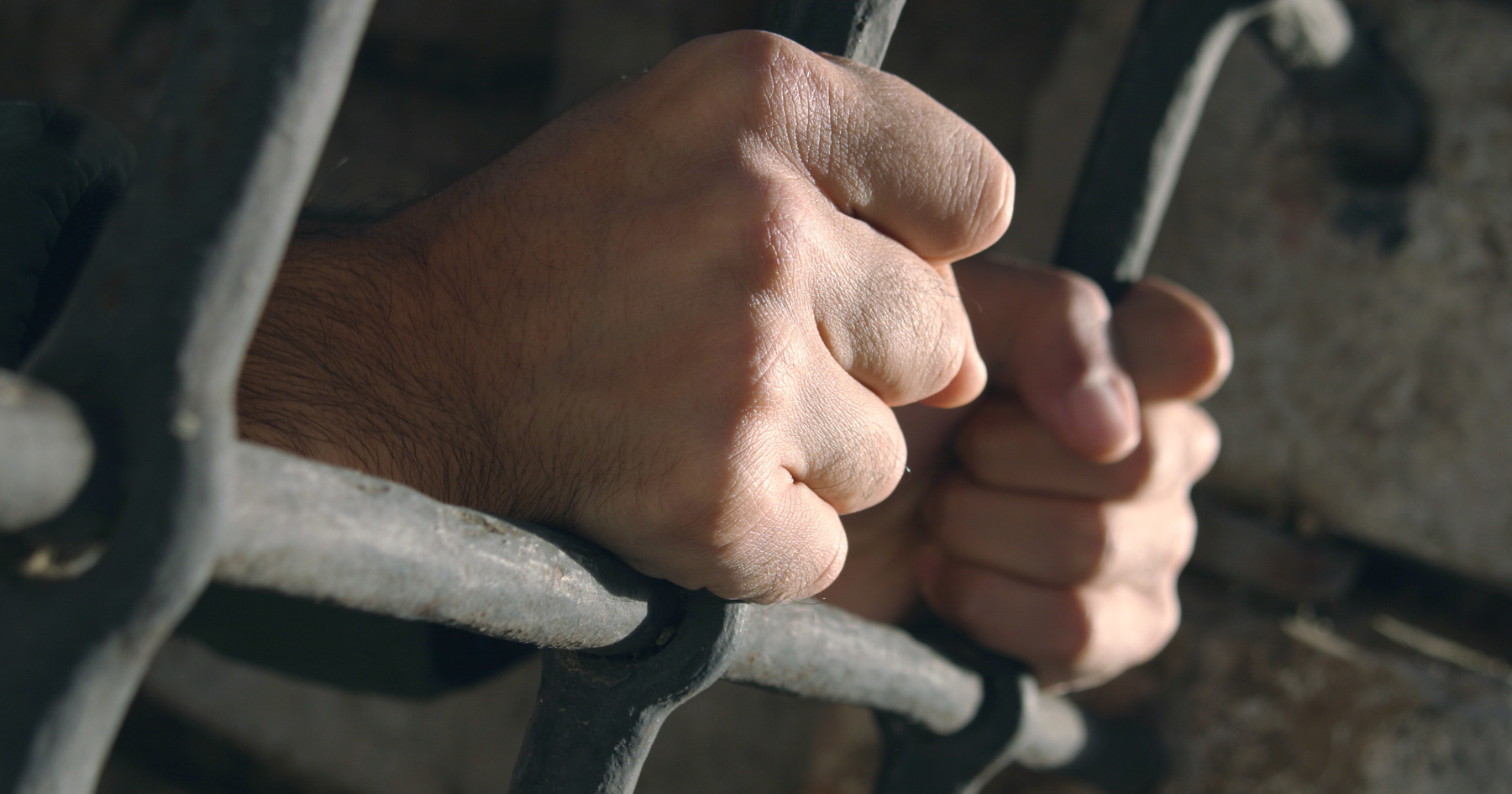An Expert Reveals the Psychology Behind Women Who Love Men Behind Bars

By:
Charm, intelligence, a solid career are all things women typically look for in a partner. But for some women, it's the men locked away in prison who really get their heart thumping.
 AP/David Goldman - apimages.com
AP/David Goldman - apimages.com
Throughout the years women have been attracted to men behind bars. In fact, California serial killer Richard Ramirez, convicted killer Charles Manson, along with northern California killer Scott Peterson have all received marriage proposals in prison despite their heinous crimes. And with the introduction of prison pen pal websites such as PrisonPenPals.com, ConvictMailbag.com, MeetAnInmate.com, women can communicate easily with prison inmates.
In the book "Women Who Love Men Who Kill," author Sheila Isenberg explores this phenomenon. The book contains countless interviews with women, psychiatrists, lawyers, social workers, prison guards in hopes of shedding light on why women are drawn to men behind bars. The book has been featured on CNN, the Today Show, MSNBC, Good Morning America, and 20/20, among other news outlets.
ATTN: had a chance to interview Isenberg to talk about her book and interviews with these women. Here's what she had to say.
Editor's note: This interview was edited and condensed for clarity.
 Gareth Copley/PA Wire - apimages.com
Gareth Copley/PA Wire - apimages.com
ATTN: Were there any commonalities you found with the women who were attracted to men in prison?
Isenberg: The real crux of the whole thing is that these are all women who are damaged. In their earlier lives they’ve been abused either by their parents, their fathers, their first husbands, their boyfriends, whatever. They’ve been sexually abused, psychologically, emotionally abused. These are women who've been hurt. And when you’re in a relationship with a man in prison. He’s in prison. He’s not going to hurt you. He can’t hurt you. So you’re always in a state of control because you’re the one who’s on the outside. You’re free. You go in and you visit him. You can decide whether to accept his collect phone calls. So in a way, even though cons are very manipulative—that’s why we call them con men and they are manipulative with the women—it’s still up to the woman to decide how far she wants to go and she knows she can't be hurt. And every single woman I interviewed had been abused in the past and that's what I found out. That was the big secret.
 Paul Faith/PA Wire - apimages.com
Paul Faith/PA Wire - apimages.com
ATTN: What were the demographics of the women you interviewed?
Isenberg: They came from all different backgrounds, different socioeconomic classes, different levels of education. They were highly educated women—one woman had a Ph.D. and was a college professor. Other women hadn’t graduated from high school. Socioeconomic—there were rich women. There were poor women. There were women who are married, women who were single, women with children, women who didn’t have children, all different kinds of women. The only thing they had in common, which I did notice as a common factor, was that there were a lot of Catholic women.
 AP Photo/Sue Ogrocki - apimages.com
AP Photo/Sue Ogrocki - apimages.com
ATTN: Did the women feel satisfied in their relationships with inmates?
Isenberg: The women were generally as they described it, madly in love, desperately in love. They had fallen in love in a way that made them not see the world around them anymore. You know, it all what I call 'stage one-super romantic love.' That's the way they saw it. It's the kind of mad, passionate love that makes you lose your appetite, that makes you want to dance and sing. When you first meet someone and you're high as a kite on that person—they all used that language. 'I'm falling in love.' 'I was blinded by love.' 'I felt like I was falling off a cliff.' And that was the initial reaction. That high, that capital 'R' romantic love was kept up during the course of the relationship because the men were in prison, because they could not have a normal life with them. Nobody came home after work and took off his dirty socks and left them on the floor. Nobody said, 'Oh, I forgot to pick up the laundry.' Nobody said, 'You take care of the kids tonight, I’m tired.' It was none of the normal give and take of a marriage or a live in companion relationship. It was always, 'Will there be a lockdown?' 'Will they let me in to see him?' 'What's his lawyer going to say?' 'Will he get paroled?' All these dramatic, super dramatic, melodramatic things.
And of course, visiting someone in a prison where you’re surrounded by razor wire and high brick walls and mean-looking guards makes your relationship almost like Cinderella and the prince—everybody’s out to get you. They’re trying to keep you apart. It’s very dangerous. It's so romantic. So having a relationship with a man in prison like that for murder is almost like reading a romance novel where you never knows what’s going to happen next. You never know if they’ll let you into the prison or they’re on lockdown or what’s going to happen.
 Flickr/Aimee - flic.kr
Flickr/Aimee - flic.kr
ATTN: Did these women feel guilty that they were in a relationship with someone who has committed a terrible crime?
Isenberg: Most of the women I interviewed managed to find a way to rationalize a way or mitigate the crime and excuse it: 'He didn’t really necessarily mean to be that murderer.' There was even one woman I interviewed who was a juror on a jury that convicted a guy of murder and then she went to visit him in prison and fell in love with him. And afterward she said, 'You know he wasn't really guilty and I don't know why I convicted him.' They find ways to excuse the murder. Like one woman I remember she said, 'He was awkward and when the door hit him in the arm, the gun went off.' Another one said, 'His friends were all drinking and doing drugs and he got carried away and he didn’t mean to do it.'
This story is not in my book but if I was going to write a sequel this would have been in the book. It was a young woman, who this young guy murdered her grandmother. And for some reason she started corresponding with him because she wanted to understand what kind of person could murder a defenseless, little old lady. And she ended up getting involved with him. And I said to her on the phone, 'How could you do that? I mean, didn't you feel angry?' She said, 'He's a changed man. He's not the same person he was.' That's another big one: 'He did it but he's not the same person.' 'He found God.' 'He found religion.' Or 'He's sorry.'
ATTN: How do these women get in contact with these men?
Isenberg: Back when I wrote the book, it was published in 1990, there was no internet, so it was pretty organic. The women who got into relationships were generally either women who worked in prisons—guards or teachers or lawyers. Some of prison lawyers got involved. There’s a girl's famous story which is about a lawyer who got involved with her client and she helped him escape. So that was organic. And then there were also pen pals. Somehow prisoners could get ads in magazines and women wrote to them. I guess they were lonely or whatever. But now, today, we have prison pen pal websites and women can go those websites and find men to communicate with.
 Looby - bigstockphoto.com
Looby - bigstockphoto.com
ATTN: Unlike the women you interviewed, other women purposely seek out criminals of great notoriety. Why do you think some women pursue a relationship with men who have committed famous crimes?
Isenberg: We live in a society where we have people who are famous for being famous, like the Kardashians. And when I wrote the book we didn't even have people like that. I think the first person like that was Paris Hilton. She was famous for being famous. She didn’t do anything. Since then we've had a whole slew of people who are famous for being famous. And now with social media, we have people famous for being famous. So now being famous is even more desirable then when it was when I wrote the book. So how are you going to get famous if you can’t make someone on social media read your blog or go to your Instagram or go to your Facebook page, you’re not going to get famous by writing a letter to Brad Pitt because he’s not going to answer you. But if you write a letter to the Boston Marathon bomber, he might answer you. So it's a very logical way to get famous.
ATTN: Was there anything that shocked you about these women?
Isenberg: What shocked me is the huge numbers, how common it is, how these guys have women all over the place. Your notorious killers have groupies. And now with social media, every one of us who gets involved emotionally with another person, we’re doing it to fulfill our own psychological needs. And with the women I interviewed, they were all damaged goods. basically. Their needs were such that they couldn't really find satisfaction or get their needs met in a normal healthy relationship. They had to find love behind the prison walls.
